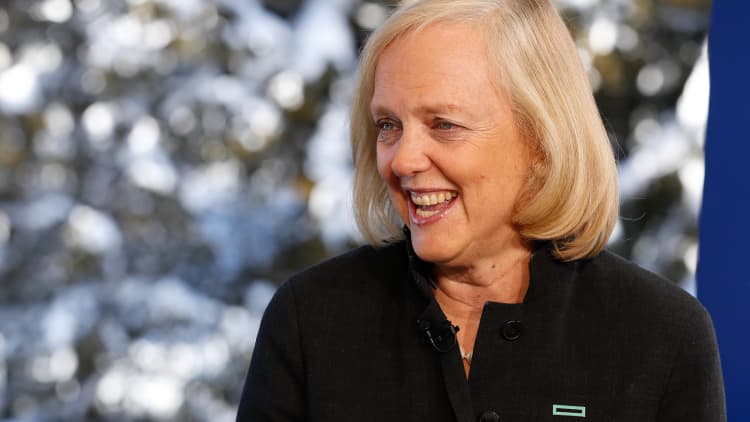Quibi, the short-form streaming service from former HP CEO Meg Whitman and film producer Jeffrey Katzenberg, says it's resonating with advertisers looking for a different way to reach a young audience.
The duo spoke onstage at the Cannes Lions International Festival of Creativity in France on Wednesday. At a session with MediaLink founder Michael Kassan, Quibi leaders said Procter & Gamble, Walmart, PepsiCo, Google, Anheuser-Busch InBev and Progressive have signed on as launch partners. The company also said it has secured $100 million in ad sales ahead of its planned launch in April 2020.
Whitman and Katzenberg, whose service focuses on mobile devices, also discussed their plans for Quibi's ad model.
"We want to make a platform that's fantastic for advertisers — that's part of our business model," Whitman said.
She said the company expects about 75% of customers to choose its ad-supported option, which will cost $4.99 per month. An ad-free option will cost $7.99 per month.
Ads, they say, will be short. For pieces of content under five minutes, customers will watch a 6- or 10-second nonskippable spot. For an hour of programming, viewers would only see about 2½ minutes worth of ads, Katzenberg said.
He said the model is designed to win over a "very difficult audience" of those in their later 20s and early 30s. One way of being more attractive to that group might be to serialize commercials, "doing a 60-second commercial that has four chapters to it — it will follow you as you watch four Quibis," he said.
P&G's chief brand officer Marc Pritchard said such a model grabbed his attention because brands are looking to reach consumers in ways that are less disruptive.
"What we're going to create is advertising, I don't even know if you want to call it advertising — it's going to be content that's going to be organic to the experience," he said.



